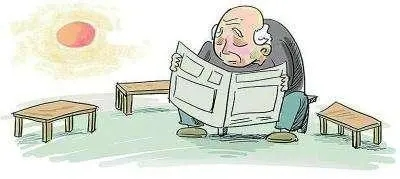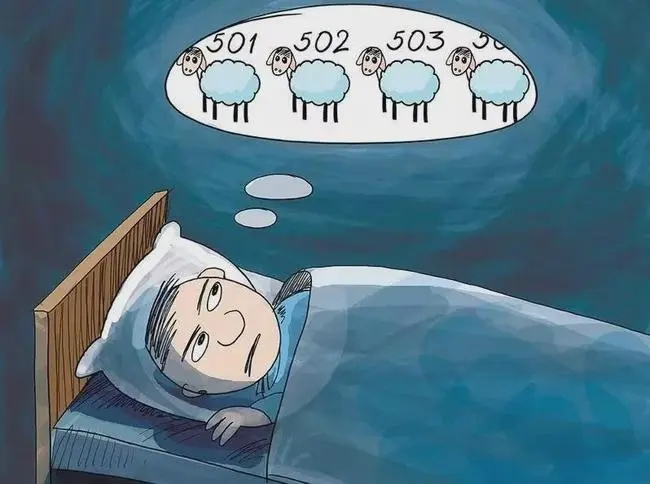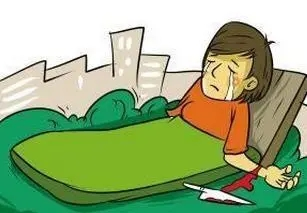Watch out: Older people can also suffer from depressive disorders
Grandpa Wang, 72, was a teacher before he retired. A year ago, he gradually developed symptoms such as temper, insomnia, loss of appetite and discomfort. He would always say that he "would rather die", "it is not interesting to live like this", "I am so sorry for my family" and so on. The family was worried about him and made an appointment with a psychologist, and Grandpa Wang was diagnosed with moderate to severe depressive disorder.
 We often think that old people will enjoy their retirement and family life. They have experienced a lifetime of wind and rain, life, fate has already had their own insight, must be able to adjust their emotions well, what can not go? But the fact is that depression disorders are not age groups, and the elderly are even more likely to have the disease and the risk is greater.
We often think that old people will enjoy their retirement and family life. They have experienced a lifetime of wind and rain, life, fate has already had their own insight, must be able to adjust their emotions well, what can not go? But the fact is that depression disorders are not age groups, and the elderly are even more likely to have the disease and the risk is greater.
So what are the characteristics of geriatric depressive disorder?
First of all, geriatric depression disorder has similar symptoms to other age depression disorders, such as low mood, reduced interest, the elderly always feel unhappy, not interested in the activities of interest in the past, pessimistic life, helpless; Will activity decline, the elderly may appear all day long, do not want to contact with the people around, often sit alone in a daze and other states.

In addition, it is worth noting that the elderly generally have a decline in cognitive function, mainly in memory decline, attention decline, language function, reaction time and other phenomena. These are not easy to get the attention of people around, people may take it for granted that people will appear in old age, but these symptoms are precisely one of the core symptoms of depression, which is also in clinical and family care, presented challenges.
Secondly, the elderly are generally accompanied by physical symptoms, such as sleep disorders, fatigue, loss of appetite, weight loss, etc. Some elderly people will also feel inexplicable pain in a certain part of the body, and some elderly people even feel organ discomfort, palpitation, nausea and so on. At this time, we may think that there is a problem with the physical function of the elderly, but what we do not know is that there is actually a problem with the emotions of the elderly. Emotions can also affect our bodies, just like when we are about to take a big, important exam, we may lose sleep the day before, and we may have an upset stomach before the exam.
 On top of that, we all know that one of the biggest risks to people with depression is that they may choose to end their lives. For older people, the risk of suicide is even greater. A foreign survey shows that the elderly male patients with depression disorders are the highest risk of suicide group of people, the domestic survey shows that the elderly female suicide rate is relatively high in rural areas, which is related to the domestic cultural environment.
On top of that, we all know that one of the biggest risks to people with depression is that they may choose to end their lives. For older people, the risk of suicide is even greater. A foreign survey shows that the elderly male patients with depression disorders are the highest risk of suicide group of people, the domestic survey shows that the elderly female suicide rate is relatively high in rural areas, which is related to the domestic cultural environment.

Since there are so many risk factors for geriatric depressive disorder, how can we, as family or friends, spot the condition in our own elderly relatives? Generally, when the following typical performances appear, we need to pay attention to them. First, the elderly always like to be alone, do not want to participate in activities, especially this state is different from the original situation, the original old optimistic, outgoing, gregarious, and now the old man has become very different from the original. Second, the elderly often say to themselves, ";do not want to live", "life is not interesting";, "how am I so useless";, "can not sleep, can not eat";, etc., these are high danger signals; Third, pay attention to the cognitive function of the elderly, if there are symptoms such as poor memory and decreased attention, in addition to considering that the elderly suffer from Alzheimer's disease, it is also necessary to consider that the elderly may suffer from depression.

Many mental diseases are caused by external incentives, the elderly depression disorders may have the following factors: children leave home, bereavement reaction to the death of relatives and friends, resignation and retirement, illness, feeling weak and so on. Other common physical diseases of old age may also aggravate the degree of depression, including Alzheimer's disease, Parkinson's disease, stroke, heart disease, cancer, diabetes, etc., and these diseases may even directly contribute to the development of depression. There are also chronic, potentially physically painful or disabling conditions that can cause depression or worsen symptoms of depressive disorder.
To find an elderly person suffering from depression disorder, family companionship and help are the most important, there are three points we need to keep in mind. Accident prevention, "medicine" supervision, more companionship, we will talk about these three points in detail. As mentioned earlier, suicide rates are higher in older people with depressive disorders because their feelings of helplessness and worthlessness may be stronger than in younger people. Usually, we should always pay attention to the psychological state of the elderly, observe whether the symptoms are alleviated or aggravated, pay enough attention to the negative words and deeds of the patients, and the tools and drugs that may become patients' self-injury should be regarded as dangerous goods and should be properly kept. In the course of treatment, if there is adverse drug reaction or symptom improvement is not obvious, the patient should be taken to the hospital in time.
 Standardized drug use is the key factor to achieve good therapeutic effect of senile depressive disorder. The family should strictly urge the patient to take the medication systematically and regularly, help the patient to keep the medication, actively communicate with the patient about the feelings after taking the medication, closely observe the effect of the medication and adverse reactions, timely feedback to the doctor, and cannot arbitrarily increase or decrease the drug or stop taking the medication. Medication should be adjusted under the guidance of a doctor. Family members should do a good job of explaining patients, eliminating their tension and anxiety, and improving medication compliance. The companionship and care of family members are the most important for the recovery of elderly patients with depressive disorder. Family members should strengthen the family care for patients, usually communicate more, patiently listen to their inner feelings, and encourage them to express their true thoughts and physical discomfort.
Standardized drug use is the key factor to achieve good therapeutic effect of senile depressive disorder. The family should strictly urge the patient to take the medication systematically and regularly, help the patient to keep the medication, actively communicate with the patient about the feelings after taking the medication, closely observe the effect of the medication and adverse reactions, timely feedback to the doctor, and cannot arbitrarily increase or decrease the drug or stop taking the medication. Medication should be adjusted under the guidance of a doctor. Family members should do a good job of explaining patients, eliminating their tension and anxiety, and improving medication compliance. The companionship and care of family members are the most important for the recovery of elderly patients with depressive disorder. Family members should strengthen the family care for patients, usually communicate more, patiently listen to their inner feelings, and encourage them to express their true thoughts and physical discomfort.
Finally, it's important to time your time to seek professional help. Depression treatment can be just as effective for older people as it is for younger people. However, since depression in old age is often triggered by life difficulties or challenges, any treatment should focus on this aspect of the problem. For example, if loneliness is the root cause of depression, medication alone will not solve the problem. We should also promote the rehabilitation of the elderly from a psychological and social perspective.

[1] Tsoh J,Chiu HF,Duberstein PR,et al. Attempted suicide in elderly Chinese persons: a multi-group,controlled study [J]. Am J Geriatr Psychiatry,2005,13(7) : 562-571.
[2] Beautrais AL. A case control study of suicide and attempted suicide in older adults [J]. Suicide Life-Threaten Behav,2002,32(1) : 1-9.
[3] Du Benfeng, Huang Zhenxiao. Life events and depressive tendency in older adults: cumulative effects, social consequences and influencing mechanisms [J]. Population journal, 2020, and (6) : 83-100. The DOI: 10.16405 / j.carol carroll nki. 1004-129 - x. 2020.06.007.
[4] Zhang Yu, Zhu Xuexue, Liu Hongyu, Zhou Ling. Analysis of depressive symptoms and influencing factors in elderly patients with chronic diseases [J]. Chinese Journal of Practical Nursing,2019(03):181-185. (in Chinese)
[5] Kong Xian-Kun, Xiao Qiaoling, Li Juan. Comparison of factors related to depressive symptoms in elderly people [J]. Chinese Journal of Mental Health,2018,32(08):648-655. (in Chinese)
[6] Linda Seligman. How to choose effective psychotherapy [M]. Beijing: China Machine Press,2016.
Author:
 (The opinions expressed are solely those of the author. Some pictures in this article are from the Internet, if there is infringement, please contact to delete)
(The opinions expressed are solely those of the author. Some pictures in this article are from the Internet, if there is infringement, please contact to delete)

